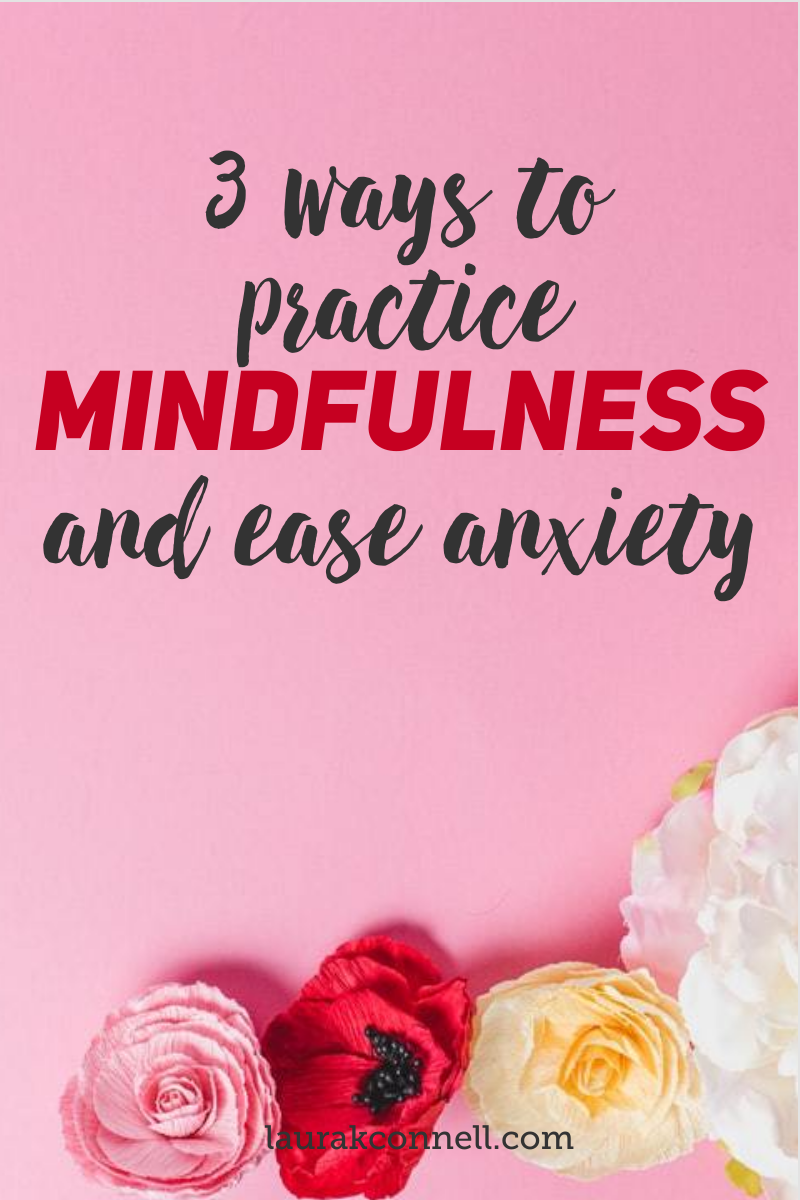Mindful: how to benefit from focus on the present moment
Mindfulness is a big catch phrase these days. The literal definition of being mindful means bringing one's attention to the present moment.
And in a world filled with distractions that can be a precious gift indeed.
Mindfulness came into my life when I took part in a pilot program that helps people who tend to escape through daydreaming.
Possibly due to past trauma, I had difficulty staying present. As a result, my thoughts wandered in directions beyond my control.
3 ways to be mindful
In the program I learned practices that helped me slow down and pay attention to the present moment. It taught me mindfulness in three helpful ways.
1. Mindful eating
Some people use mindful eating as a weight loss method. But it helps you feel better in other ways, too.
When you slow down and pay attention to what you're eating, you feel more in control. You enjoy your food more which makes you less likely to binge.
When you chew each bite 25-30 times, it takes you longer to eat. This leaves you feeling more satisfied and less likely to eat more than you need.
It helps you stop eating when you're full which improves your health and comfort levels.
2. Body scan
A body scan is a mindfulness exercise in which you relax and bring focus to your physical body. You can listen to a guided scan in which a narrator tells you which parts of your body to focus on.
For instance, you'll start by bringing your focus to your head. Slowly, you'll make your way down your body and finish by paying attention to your feet.
The exercise does not ask you to relax or feel any different about your body, but simply to focus on it.
Some people say the practice helps them connect with their bodies in a beneficial way. It helps them know where they hold stress and anxiety and release it.
It also helps discipline a scattered mind by bringing thoughts into focus on a specific object (your body) in the present moment.
3. Meditation
Mindfulness training introduced me to meditation practices that are now part of my daily life. It's as simple as setting a timer and paying attention to your thoughts.
Lasting from three to twenty minutes their impact on my brain has been palpable. The hamster wheel of my thoughts slows down to a crawl. I feel more calm and in control.
Like many of life's lessons, this one took years to learn. I had believed meditation only served you during the specific time you practiced it.
After a few weeks I discovered the far-reaching effects of meditation. It re-wires your brain, making it less scattered and more functional.
Meditation is usually framed as an Eastern philosophic tradition. But it doesn't have to be that way.
Anything that keeps you centered in the present moment can work as a meditation. Meditating on a Scripture verse or praying helps you overcome a runaway brain, too.

